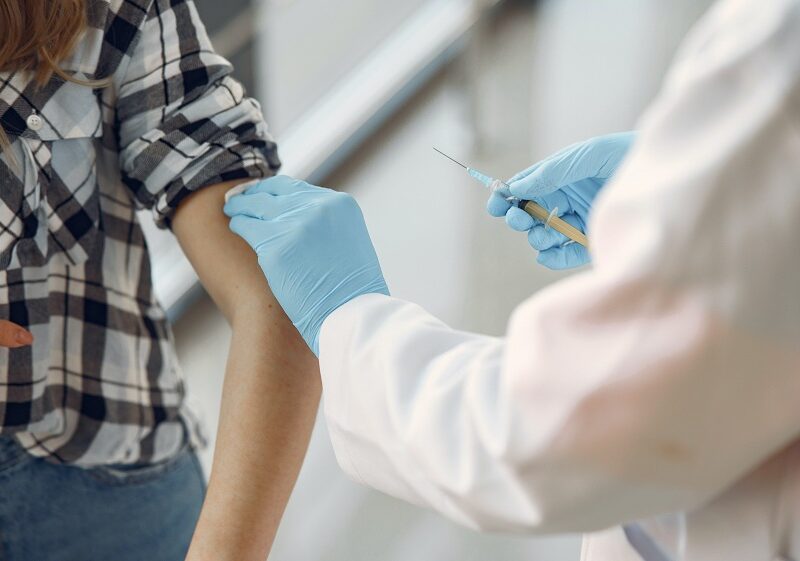Tetanus is a serious bacterial infection that can cause muscle stiffness and spasms, leading to lockjaw and difficulty swallowing. While tetanus is rare, it can be fatal if left untreated. Vaccination is the best way to prevent tetanus infection, but some people may be concerned about the risk of Guillain-Barré syndrome (GBS) after receiving a tetanus shot. In this article, we’ll discuss how to reduce the risk of GBS after tetanus vaccination and tips for a safe and effective immunization experience.
Understanding GBS and Tetanus Vaccination
Guillain-Barré syndrome (GBS) is a rare but serious autoimmune disorder that can cause muscle weakness and paralysis. While the exact cause of GBS is unknown, it has been associated with some vaccinations, including the tetanus vaccine.
The tetanus vaccine is a safe and effective way to prevent tetanus infection. It is typically given in combination with the diphtheria and pertussis vaccines (known as the Tdap vaccine) and is recommended for adults every 10 years.
Reducing the Risk of GBS After Tetanus Vaccination
While the risk of GBS after tetanus vaccination is low, there are several steps you can take to reduce the risk even further:
- Get vaccinated by a licensed healthcare professional: Always receive vaccinations from a licensed healthcare professional, such as a doctor or nurse. This ensures that the vaccine is administered properly and safely.
- Disclose your medical history: Before receiving a tetanus shot, disclose your medical history to your healthcare provider. This includes any history of GBS or other neurological disorders.
- Monitor for symptoms: After receiving a tetanus shot, monitor for symptoms of GBS, including muscle weakness, tingling, and numbness. Seek medical attention if you experience any of these symptoms.
- Consider vaccine court: If you experience GBS after receiving a tetanus shot, you may be eligible for compensation through the National Vaccine Injury Compensation Program (VICP), also known as vaccine court.
Tips for a Safe and Effective Immunization Experience
In addition to reducing the risk of GBS, there are several tips for a safe and effective immunization experience:
- Follow vaccine schedule: Follow the recommended vaccine schedule for your age and health status.
- Communicate with your healthcare provider: Communicate with your healthcare provider about any concerns or questions you may have about vaccinations.
- Take care of yourself: Get plenty of rest, eat a healthy diet, and avoid alcohol and drugs before and after receiving vaccinations.
- Keep vaccination records: Keep a record of your vaccinations, including the type of vaccine, date received, and the name of the healthcare provider who administered the vaccine.
Vaccine Court and Vaccine Injury Compensation
Vaccine court, officially known as the National Vaccine Injury Compensation Program (VICP), is a program that provides compensation to individuals who have been injured by certain vaccines. The VICP was created in 1986 as a way to provide compensation to individuals who have been injured by vaccines, while also ensuring that vaccines remain widely available to the public.
If you have been injured by a vaccine, including the tetanus vaccine, you may be eligible for compensation through vaccine court. To be eligible for compensation, you must file a claim with the VICP and demonstrate that your injury was caused by a vaccine covered by the program.
Compensation through vaccine court can help cover medical expenses, lost wages, and other costs associated with vaccine injuries. It is important to note that filing a claim through vaccine court does not guarantee compensation, and the process can be complex and time-consuming.
Addressing Vaccine Hesitancy
Vaccine hesitancy is a growing concern in the United States and around the world. Vaccine hesitancy refers to the reluctance or refusal to receive vaccines, despite their demonstrated safety and effectiveness. Vaccine hesitancy can be influenced by a variety of factors, including misinformation, mistrust of the medical establishment, and cultural or religious beliefs.
Addressing vaccine hesitancy is important to ensure that individuals and communities are protected from vaccine-preventable diseases. Here are some strategies for addressing vaccine hesitancy:
- Provide accurate information: Providing accurate information about vaccine safety and efficacy can help counter misinformation and address concerns about vaccines.
- Address cultural or religious beliefs: Acknowledge and address cultural or religious beliefs that may influence vaccine hesitancy, while also emphasizing the importance of vaccination for individual and community health.
- Build trust: Building trust between healthcare providers and patients can help increase vaccine uptake and address concerns about vaccines.
- Promote vaccine accessibility: Making vaccines more accessible, including through mobile clinics and community outreach programs, can help increase vaccine uptake and address barriers to vaccination.
Conclusion
Tetanus vaccination is a safe and effective way to prevent tetanus infection. While the risk of GBS after tetanus vaccination is low, there are steps you can take to reduce the risk even further. By getting vaccinated by a licensed healthcare professional, monitoring for symptoms of GBS, and considering vaccine court if necessary, you can reduce the risk of GBS and ensure a safe and effective immunization experience.
If you have concerns or questions about vaccine court or vaccine injury compensation, contact The Vaccine Law.

